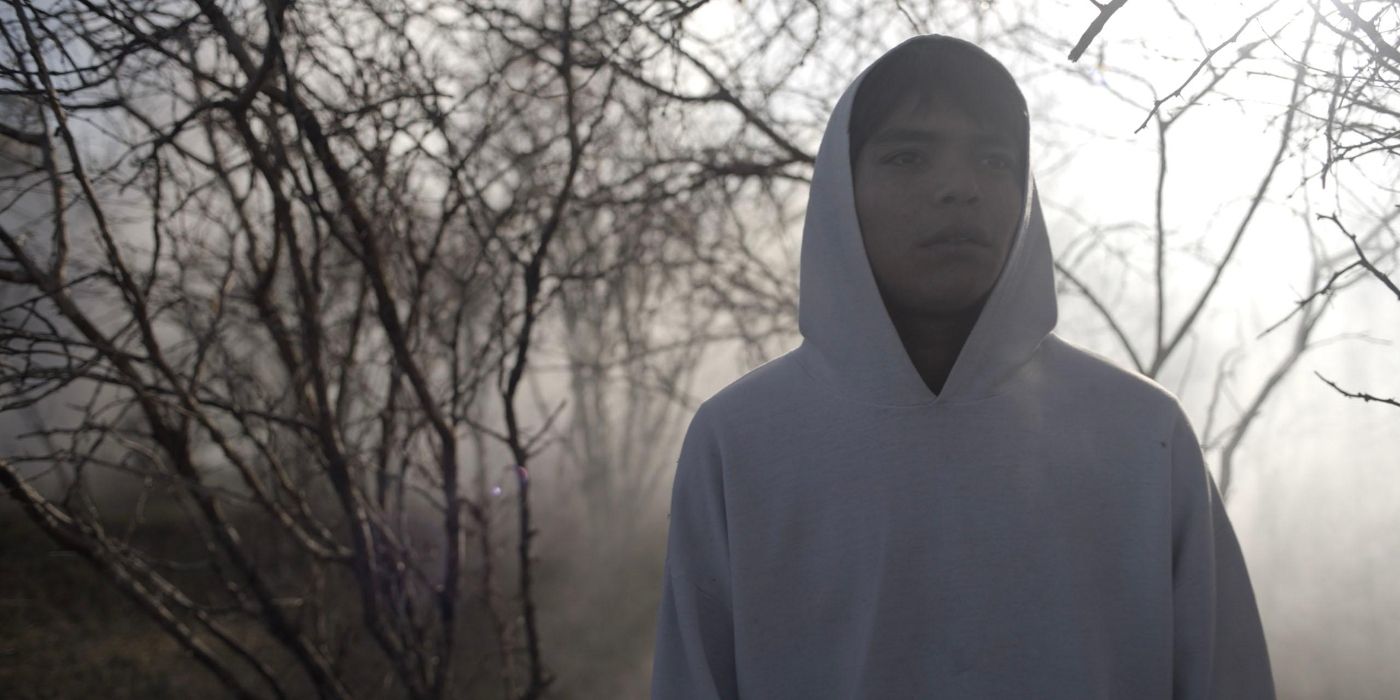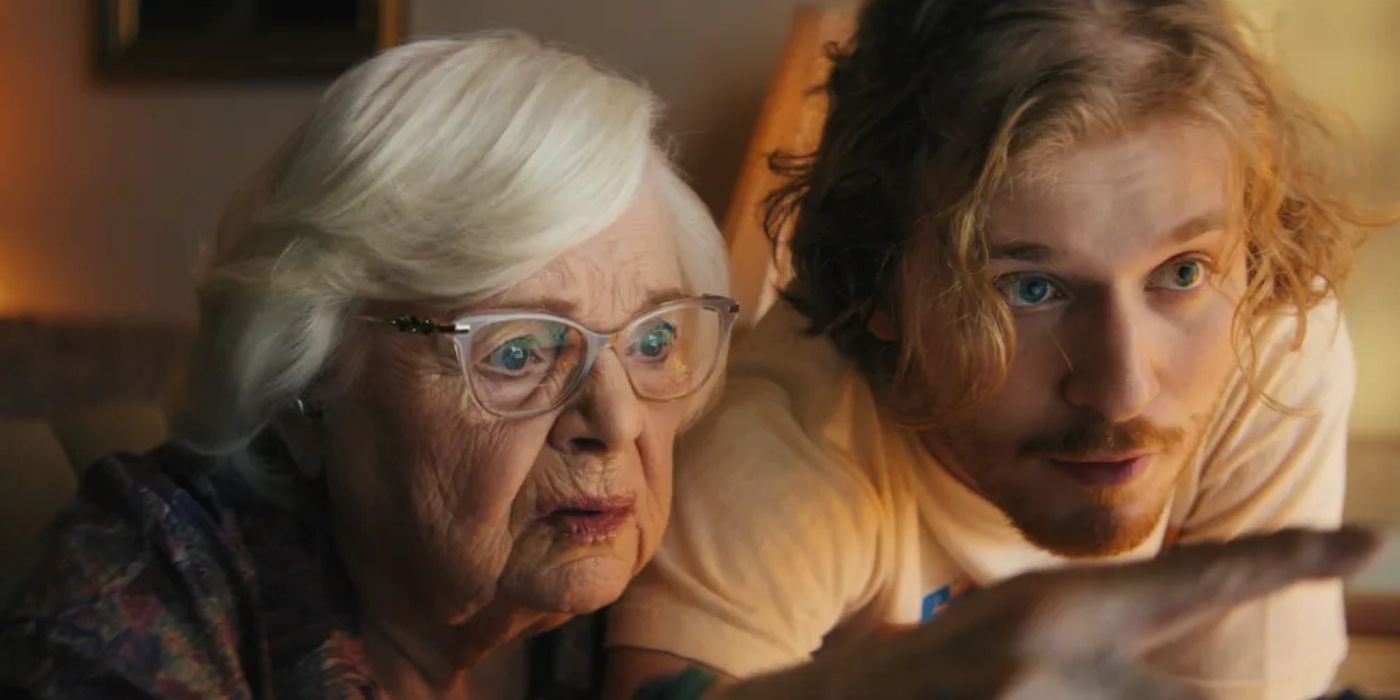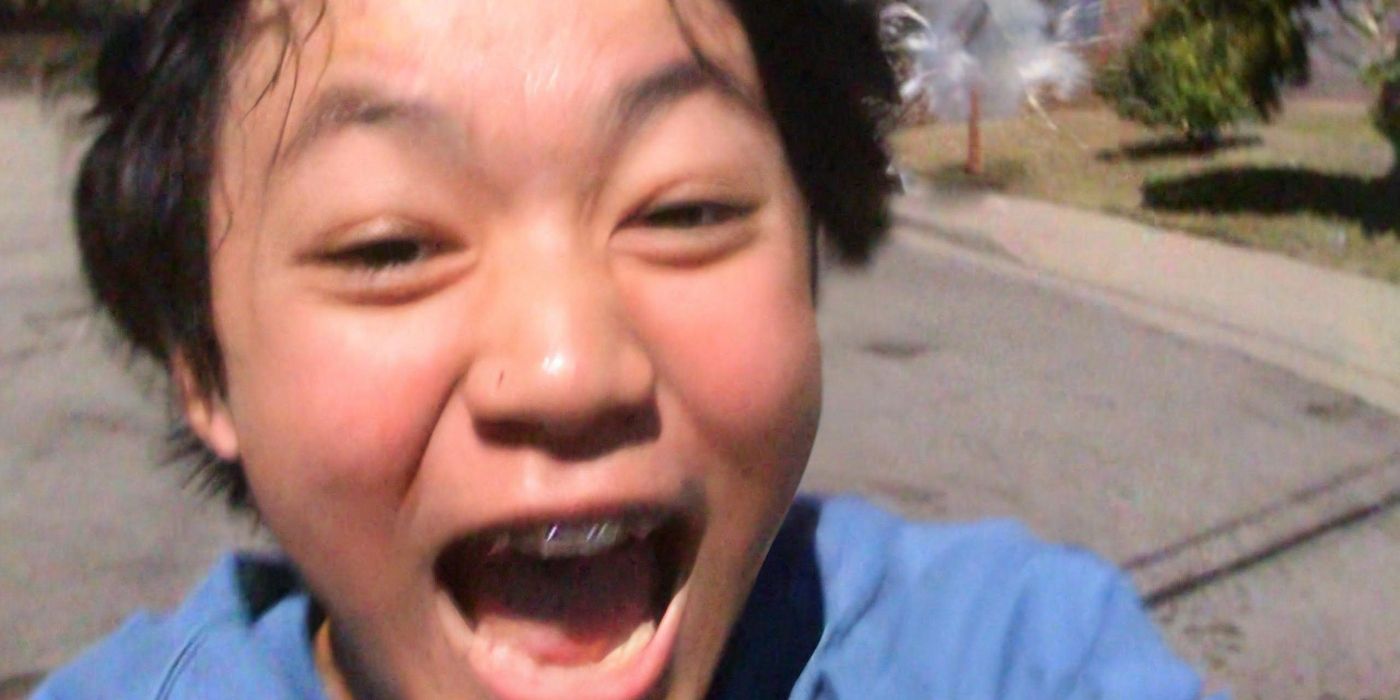Whether they like it or not, Dìdi speaks directly to Millennial audiences. Specifically: those who entered high school in the late 2000s and had to navigate the typical mood swings, voice cracks, and family dysfunction that came with being an American teenager in a post-9/11 world on the verge of digitalization. Facebook statuses were X posts before X became X (in fact, before Twitter was even Twitter), YouTube was an exciting blank canvas for young visual artists, and IMs were the first DMs. With skater chic and alt-rock flavors, the film drips with nostalgia for a time that was infuriatingly confusing but, in retrospect, also much simpler.
Written, produced, and directed by Sean Wang, and making its premiere at this year’s Sundance Film Festival, Dìdi is a semi-autobiographical film about 13-year-old Taiwanese-American Chris Wang (Izaac Wang, who is not related to the director) as he enjoys his final summer before entering high school. It is 2008 in Fremont, California, and though the sun couldn’t be brighter, Chris is going through a difficult time. His father lives and works in Taiwan, his annoying older sister is about to move away for college, his grandmother doesn’t speak English, and his wannabe-painter mother is often lost in her own world.
For Chris, being a teenager is hard. Between first crushes and first kisses, losing old friends and making new ones, and, ultimately, learning how to love his mom, this summer is a roller coaster of adolescent milestones and growing pains. In this way, Dìdi is heartfelt and resonant. Anyone who was a teenager will relate, and anyone who is a Millennial will — in the best way, of course — cringe.
A Mother-Son Dance Between Izaac Wang and Joan Chen
Dìdi (弟 弟)
- Release Date
- January 19, 2024
- Director
- Sean Wang
- Cast
- Izaac Wang , Joan Chen , Shirley Chen , Chang Li Hua
- Impressively complex characters
- Believable relationship between mother and son
- Well-crafted late 2000s setting
- Pushes the limit of frustration toward protagonist
The heart of Dìdi is the complex relationship between Chris and his mother, Chungsing (Joan Chen). Like every teenager, Chris is preoccupied with finding where he fits in and how he stacks up against his friends and classmates. Wang (the actor) turns in an impressively sensitive performance, deftly navigating Chris’ darker moments of self-doubt and rebellion with the lighter moments of boyhood foolishness. He is appropriately precocious, but also unafraid to dive into Chris’ vulnerabilities.
Wang certainly carries much of Dìdi‘s emotional weight, and while he may lead the dance that is Chris and Chungsing’s dysfunctional mother-son relationship, it’s Chen who commands your attention. The last time Chen was on American audiences’ big screens was in 2020’s Tigertail and Ava. Those roles, of course, were egregiously brief, so it’s great to see Wang (the director) fully take advantage of Chen’s talent. She paints Chungsing’s Past Lives-like regret all over her face but never forgets to shade in the subsequent guilt that comes with it. It’s a deeply human performance that sets the bar high for the rest of the year.


Sujo Review: A Gripping Mexican Cartel Drama Explores Free Will [Sundance 2024]
Sujo’s father was a cartel member. While he wants a different life for himself, growing up in a cycle of violence might make that fate unattainable.
What’s most interesting about Dìdi is how it will test your patience, namely when it comes to Chris’ behavior. Between bad-mouthing his mom, terrorizing his sister, Vivian (Shirley Chen), and wallowing in self-pity, there’s a temptation to immediately dismiss him as a deeply unlikable protagonist and, by extension, instantly reject the film itself. To be sure, Chris is a veritable brat at times, but it’s interesting how Wang (the director) utilizes the audience’s trigger-happy judgment to, in turn, actually connect with them.
Coming of Age with Humor and Heart
With many great coming-of-age stories of the past, you never doubt that the protagonist will learn an ultimate lesson by the time the credits start to roll — we can easily predict that Cady Heron will change her high school for the better in Mean Girls and that Daniel LaRusso will triumph in the end in The Karate Kid — but Dìdi isn’t that easy. More than just going through the coming-of-age motions, however, Wang actively contends with the form itself; the audience, like the characters themselves, must earn the happy ending.


Thelma Review: June Squibb Could Be the Next Tom Cruise [Sundance 2024]
June Squibb channels her inner Tom Cruise in Thelma, an action comedy about a grandmother who goes to great lengths to get back at her scammers.
This is why Dìdi‘s 2008 setting works perfectly: grief and trauma from terrorism, mixed with a historic recession, made life really difficult; on the other hand, technology and social media were on the rise, making us more “connected” than ever, signaling a sort of hope as we embarked on a new frontier. Yet, underneath the Facebook statuses, selfies, and personal YouTube videos, the characters in Wang’s film are merely orbiting each other, aware of each other’s existence, but never genuinely in contact. It’s this inherent paradox that drives Dìdi.
As Wang’s film shows, everyone had different ideas about who they were, who they wanted to be, and what they envisioned for themselves. This is where the friction — particularly between Chris and Chungsing — comes from. But in this friction also lies the love and understanding the mother and son need to move forward together — and, by extension, the compassion audiences need to fully appreciate the film. Just as the two reach a boiling point, it’s only by surrendering to the anger you, as the viewer, feel when you see him mistreat his mom or the frustration that rattles your entire being when he enters his “I can’t do anything right” mindset that you can finally see Chris for who he is and, what’s more, realize that he isn’t unlike any of us: lost, unsure, and, at the end of the day, only human.
This story originally appeared on Movieweb

